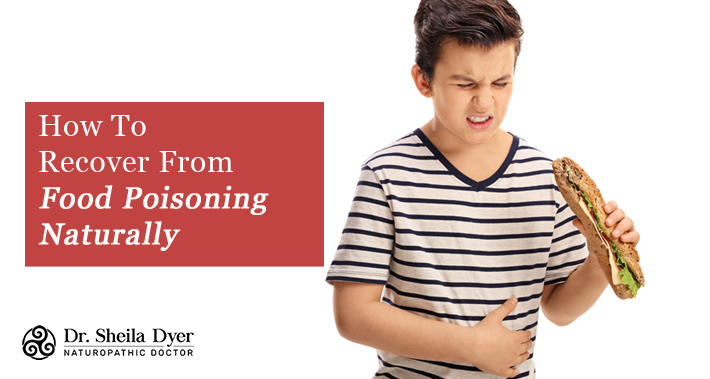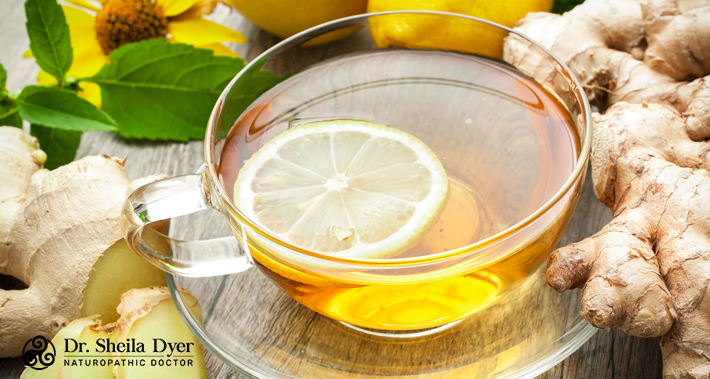Dealing with the side effects of food poisoning is never fun.
Generally occurring after having food or drink which has been contaminated by a virus, bacteria, or parasite, symptoms may happen as quickly as within a few hours, or sometimes take days or even weeks to develop.
As a naturopathic doctor offering nutritional counselling services in Toronto, I am here today to give you some natural tips for recovering from food poisoning.
Keep reading to learn more.
What Is Food Poisoning?
Also referred to as foodborne illness, food poisoning is an illness which is caused by eating food which has been contaminated.
Food can become contaminated with toxins or infectious organisms due to issues with the processing, production, or poor food handling practices.
Common Symptoms Of Food Poisoning
The symptoms associated with food poisoning may differ, depending on the specific parasite or bacteria which caused it, however some of the most common symptoms include:
- Fever
- Vomiting
- Watery or bloody stool
- Nausea
- Abdominal cramps
- Stomach ache
As you can see, these are largely digestive symptoms, which is why digestive health naturopaths are trained to help with food poisoning.
What Causes Food Poisoning?
There are five pathogens which are the cause of most cases of food poisoning.
The two most common are salmonella, often found in meat, eggs, and dairy and norovirus, which is often carried on fruits and vegetables.
Other sources include:
- Staphylococcus, which is generally found in animal products
- Campylobactor, bacteria found on undercooked meat
- Clostridium perfringens, generally found on poultry and meat
Other causes may include:
- Mold
- Contaminants
- Allergens
- Toxins
- Parasites
- Bacteria
How Do We Diagnose Food Poisoning?
In most cases, food poisoning can be easily diagnosed based on the symptoms alone – experiencing stomach cramps, diarrhea, and vomiting when there is no other immediate cause is usually a pretty good clue.
If others who ate the same meal, or shared your food are also experiencing these symptoms then that’s an even surer sign of a foodborne illness due to contamination.
In cases where the cause is unknown, taking blood tests or stool cultures can help your Toronto naturopathic doctor pinpoint the cause.
However, these tests are generally only used if the illness is particularly complicated or severe.
A Natural Approach To Recovering From Food Poisoning
If you are experiencing food poisoning, there are a number of things you can do to ease your symptoms and help you recover.
Let’s have a look at some of the things you can do to help your body recover faster.
1. Get Plenty Of Rest
This one is should be pretty easy for most people.
If you are experiencing symptoms of foodborne illness, it’s not likely you will have the desire to be doing too much.
So curl up with a good book, or binge your favourite Netflix show, and let your body rest.
Or go all in and get some sleep.
It’s unlikely your body will give you any other options though – food poisoning is exhausting.
2. Stick To A Basic Diet
You probably won’t feel very hungry when you’re first experiencing the symptoms of food poisoning.
However, you’re human, and eventually you will need to eat something.
When you’re ready to eat, sticking to basic, bland foods can help you replenish nutrients.
A good acronym to use is “BRAT”: bananas, rice, applesauce, and toast.
Additionally, clear broths are good to sip on.
3. Stay Hydrated
As I’ve mentioned above, vomiting and diarrhea are common side effects of food poisoning.
And a major side effect of these symptoms is dehydration, as they can both cause large amounts of lost fluids in a short period.
Dehydration can lead to feeling weak and tired, and even an irregular heartbeat.
While water is your best bet for hydration, non caffeinated herbal teas can be a great option as well if you get bored of plain water.
4. Drink Ginger Tea
While we’re on the topic of hydration, one thing you’ll definitely want to sip on is ginger tea.
A 2015 article in the journal Current Opinion in Supportive and Palliative Care looked at the effects of ginger on nausea and vomiting.
It was found that ginger can be beneficial for dealing with nausea and vomiting.
So while it won’t “cure” food poisoning, ginger can help settle your stomach, and may make it easier to take in other foods as well.
5. After, Take Probiotics
When you experience food poisoning, it can offset the balance of “good” and “bad” bacteria in your microbiome.
Once your food poisoning has passed, it’s important to try to re-balance the bacteria in your gut.
Naturopaths recommend probiotics for many different reasons, but in this case they can help replenish these bacteria and may even act to help to prevent food issues int the future.
You can try taking them while you’re experiencing symptoms, but they might aggravate your symptoms.
Book An Appointment With Dr. Sheila Dyer, ND, Today
Are you worried about gut and bowel health?
Have you recently had a bad experience with food poisoning, and are worried about ensuring your gut is in good shape as you recover?
Or maybe you’re concerned what you thought was just food poisoning is something more chronic, as your symptoms are not going away as quickly as you’d hoped.
I’m Dr. Sheila Dyer, ND, a naturopathic doctor in Toronto, and I can help.
Contact me today for more information about my nutritional counselling services, or to learn about other ways naturopathic medicine can help you.
If you have questions about naturopathic medicine, or would like to start with your first consultation, contact me, and let’s book an appointment.
Dr. Sheila Dyer, ND1080 Dovercourt Rd,
Toronto, ON M6H 2X8
(416) 554-5135
► https://g.page/DrSheilaDyerNd
Dr. Sheila Dyer is a Naturopathic Doctor and a practicing registered nurse offering holistic healthcare with a scientific focus

